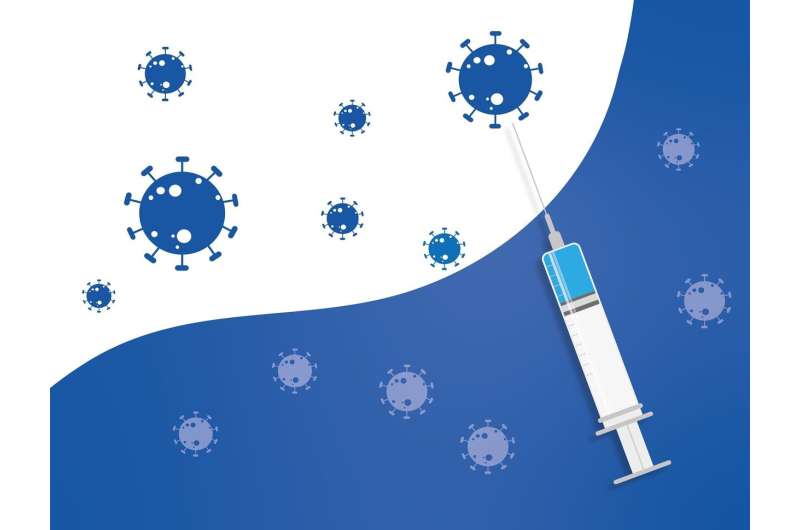The vulnerable lack access to COVID treatments. Will it get worse?

There have never been more COVID-19 treatments available than right now. The U.S. government is distributing more than 1 million courses of monoclonal antibody and antiviral therapies to the states and federal agencies this month alone.
But experts say those treatments have largely failed to reach the most vulnerable populations, including people of color, those with low incomes and the immunocompromised. In an analysis published in January, the Centers for Disease Control and Prevention found that patients of color were less likely to receive monoclonal antibody treatment than white patients.
Those disparities could become even more stark as the federal government runs out of money to buy treatments and to cover testing, vaccination and treatment for all Americans.
This month, Congress passed a $1.5 trillion budget that includes no future COVID-19 funding. The White House had requested $22.5 billion, but Senate Republicans rejected it, wanting the funds to be offset by spending cuts. Both parties settled on $15 billion, but then Democrats scuttled the plan over the GOP's insistence that billions in already-promised state funding be reallocated to help pay for it.
For now, there's no way to adequately fund President Joe Biden's "test and treat" strategy of covering the cost of Americans getting tested at their local pharmacies and, if they're positive, to receive antiviral drugs.
Florida is among the top recipients of the monoclonal treatments currently being distributed by the federal government. Last week, it received more than 18,000 doses, third-most among all states. Gov. Ron DeSantis has for months emphasized monoclonal antibody treatment over preventive measures such as masking and vaccinations, though that strategy faltered earlier this year when the most prevalent antibody treatments were found to be ineffective against the omicron variant.
During a virtual panel hosted Wednesday by the University of Southern California Annenberg Center for Health Journalism, though, health experts said governments must focus more on getting treatments to the communities most afflicted by both the pandemic and addressing broader, endemic disparities in the health care system.
"If we keep doing things the way we have been doing, first come first serve … you're not going to make a difference," said Miami Herald journalist Daniel Chang, one of the panelists. "You need to acknowledge these disparities exist."
In January, Chang reported on Florida's decision to send doses of a scarce monoclonal antibody drug, meant for people with immune system problems that make vaccination less effective, to a private Broward County clinic rather than a major hospital with thousands of immunocompromised patients. The state later promised to prioritize distribution of the drug, Evusheld, to hospitals with large numbers of organ transplant and cancer patients.
"There are so many problems with the way we treat COVID, and some of them are baked into the healthcare system," said panelist Aaron Carroll, a pediatrician and chief health officer at Indiana University. He said the American response to the pandemic has been beset by a "failure of imagination."
The tight timelines attached to coronavirus treatments—which need to start within days of symptoms—are challenging for those who are uninsured, underinsured or otherwise struggle to navigate the healthcare system, Carroll said.
Patients have to clear a slew of hurdles in a short amount of time: Getting tested; getting the results back; getting an appointment with a doctor who can prescribe treatment (which may well take more than a day); and being able to find the prescribed treatment at a local pharmacy.
"There have been shortages," Carroll said. "Unless you have hours in the day with nothing to do, to be on standby to call pharmacies to know when they might be supplied, the likelihood of you getting this drug within five days of your being infected with COVID is less and less."
The Biden administration's "test to treat" program was intended to speed up the process, by supplying treatments to the same pharmacies now largely responsible for testing, thus creating a one-stop shop. But panelists said it doesn't go far enough, echoing the concerns of pharmacists who have said that the program is destined to fail because pharmacists aren't authorized to prescribe the treatments.
That protocol separates the coronavirus plan from proven test-to-treat models like those for strep throat and the flu, Chang noted.
Panelist Annie Luetkemeyer, a professor of medicine at Zuckerberg San Francisco General Hospital at University of California, San Francisco, said there are good reasons not to give pharmacists broad authority to prescribe COVID-19 treatments: Some of the medications could interact negatively with other drugs, and pharmacists may not have access to information about what else a patient is taking.
Still, she said, giving pharmacists the ability to prescribe antiviral drugs when it's in the scope of their practice is one of many possible tactics to improve access to COVID-19 treatments—along with, as Carroll suggested, proactive models like using community sites as distribution centers, so people will already have the drugs on-hand if they contract the virus.
"We don't do any of that," Carroll said. "We keep trying to shoehorn this into the already existing inequitable healthcare system that nobody loves to begin with."
The journalist Ed Yong, who last year won a Pulitzer Prize for his coverage of the pandemic, recently wrote in The Atlantic magazine that the U.S. is "sprinting" toward the next pandemic as a result of dwindling funding and rolling back of preventative measures.
As panelists spoke Wednesday, parts of Asia were dealing with severe coronavirus outbreaks, infections were surging in Western Europe and experts in the U.S. were bracing for a new surge driven by an omicron subvariant. Carroll said America needs "a massive focus on fixing the infrastructure and making sure we're ready for the next time."
"I wish there was more of a sense of shared sacrifice and community," he said, "but I also wish we had policy that provided the resources to protect people."
©2022 Tampa Bay Times.
Distributed by Tribune Content Agency, LLC.




















